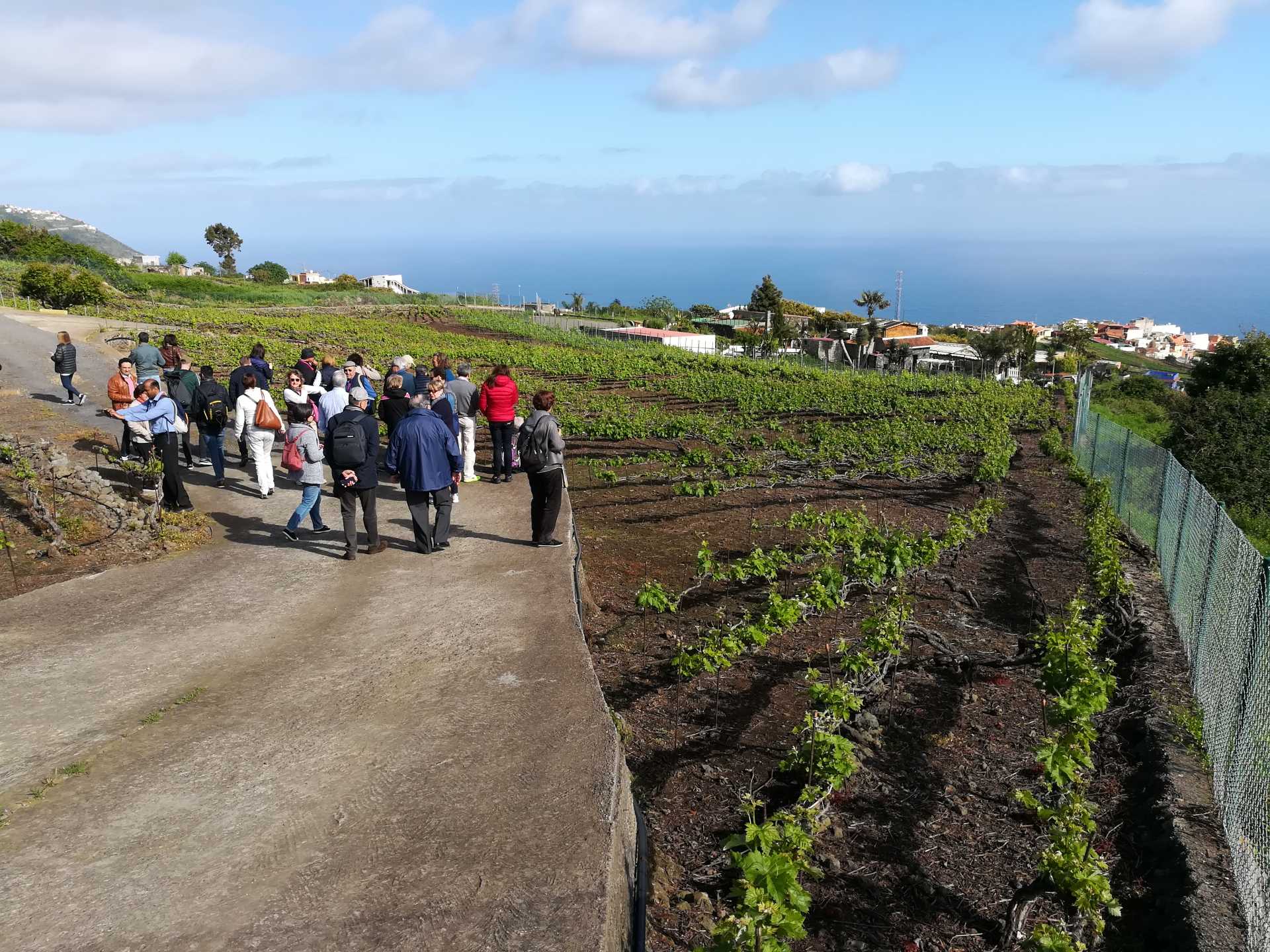
VIth International Congress on Mountain and Steep Slopes Viticulture
26th - 28th april 2018 - San Cristobal de La Laguna (Canary Islands - Spain)
Heroic viticulture is now a worldwide phenomenon; in fact, this type of viticulture finds its roots in Europe, but can also be found in South America and in the Middle East. “Extreme” wine-makers who work in these territories cultivate and produce great wines on small islands and on the steepest slopes on earth; to that extent, they share the same strengths and weaknesses.
As for the Cervim, it forms a link between numerous international entities meeting the criteria of mountain viticulture. Furthermore, during the past few days, it has been organising the sixth International Congress on Mountain and Steep Slope Viticulture, which took place in San Cristóbal de La Laguna, Tenerife, in the Canaries. This was the second Congress in two years after the one that was held in 2017 in Conegliano (Treviso, Venetia) – thus showing great commitment for the Cervim, which has had the opportunity to get a close look at the political and institutional arena and to meet true experts of the wine sector.
These three days (26th – 28th April) of scientific debates, technical and political meetings and theme tours in “heroic” vineyards of Tenerife have gathered participants that came from all parts of the world. President of the Cervim Roberto Gaudio argues that the presence of great personalities of European and national agriculture gave rise to crucial debates about key issues relating to heroic viticulture. He further argues that although mountain viticulture only represents 5% of the viticulture worldwide, it is a symbol of excellence when it comes to producing wines of greater quality. The reasons to that are to be found in extreme climate conditions, particular soil types, unique vines and in the use of specific agro-oenological methods. Furthermore, the fact that these landscapes cannot be “reproduced” gives them particular cultural, economical and touristic values. Narvay Quintero, Councillor of the Government of the Canaries for Agriculture, has pointed out the importance of this congress: in fact, it “gathers specialists from Spain, France, Germany, Italy, Portugal, the US, Switzerland and even Russia – thus bringing value to the wine sector in the archipelago. It also brings recognition to the work of farmers, oenologists and wine-makers in the Canaries.” According to Quintero, the fact that this sector has been more and more professionalised in the past few years gave rise to the production of exceptional wines of higher quality now internationally reputed. Vine cultivation is the second most important type of cultivation in the Canaries. It maintains biodiversity, landscapes & traditions and it preserves rural regions.
The different rapporteurs – who could be qualified as young researchers – have brought a whole new scientific perspective and interest to the sessions (for instance when it comes to new technologies, i.e. drones for the study of wine-growing areas).
Chairperson of the Scientific Committee Diego Tomasi argues efforts should be made in minimising labour input and in increasing mechanisation in order to reduce production costs. Furthermore, oenological techniques currently used should help maintaining the unique properties of grapes and grapevines. Representatives of local, regional and international institutions agreed on the fact these territories need to be defended.
Director General of the OIV – the world’s largest organisation for wines and vines – Jean-Marie Aurand took part in the Congress for the first time. He stressed the decisive economic role of mountain viticulture “for local territories”. He believes it can turn difficulties into resources. He also highlighted the crucial and international role of the Cervim in defending this type of viticulture.
Director General for Agriculture and Rural Development of the European Commission Stefano Cinti also intervened: “We can already benefit from EU support and investments in vineyard restructuring on steep slopes. The current battery of measures announced in the wine CMO shall be confirmed in the post-2020 Common Agricultural Policy (CAP)’s Commission proposal. Some of the objectives pursued by the CAP entail issues relating to heroic viticulture.”